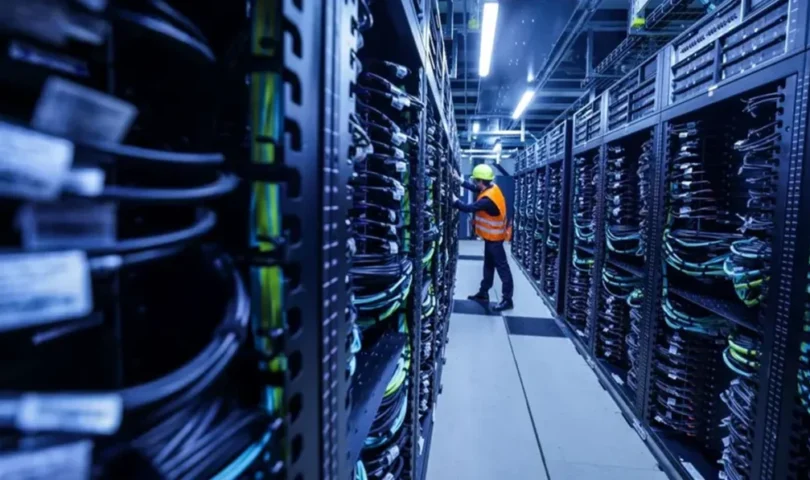JÜLICH: German Chancellor Friedrich Merz said on Friday that Europe has the potential to catch up in the global artificial intelligence (AI) race as he inaugurated the continent’s fastest supercomputer, Jupiter.
“We in Germany, and we in Europe, have every opportunity to catch up and then keep pace with the United States and China,” Mr Merz said at the launch ceremony, calling sovereign computing capacity vital for competitiveness and national security.
Leap forward for Europe
Based at the Jülich Supercomputing Centre in western Germany, Jupiter is Europe’s first “exascale” computer — capable of performing one quintillion (a billion billion) calculations per second. By comparison, the US already operates three such machines, all run by the Department of Energy.
“Jupiter is a leap forward in the performance of computing in Europe,” said Thomas Lippert, head of the centre, noting it is 20 times more powerful than any other computer in Germany and the first in Europe that can be considered internationally competitive for training AI models.
The machine covers 3,600 square metres (38,000 sq ft) — roughly half a football pitch — and is packed with about 24,000 Nvidia chips, the processors most sought after by the AI industry.
Funding and access
The €500 million ($580m) project is jointly funded by Germany and the European Union. Its computing power will be available to researchers across disciplines as well as private companies, for uses ranging from training AI models to advanced climate simulations.
According to a Stanford University study, US institutions produced 40 notable AI models in 2024, compared to 15 in China and just three in Europe. Jupiter, experts say, could help narrow that gap.
Uses beyond AI
Emmanuel Le Roux, head of advanced computing at French tech group Eviden, a co-developer of the system, described it as “the biggest artificial intelligence machine in Europe.”
Beyond AI, Jupiter is expected to aid long-term climate forecasting, simulating up to 30 years in advance — and potentially as far as a century — compared to current models that extend just a decade. It may also help simulate brain processes for neurological research, optimise wind turbine designs, and support drug development for diseases such as Alzheimer’s.
Read More: Brazil ease past Chile with 3-0 win in World Cup qualifier
Reliance on US technology
Despite the breakthrough, experts noted that the reliance on Nvidia chips underscores Europe’s continued dependence on US technology. Jose Maria Cela of the Barcelona Supercomputing Center said larger systems like Jupiter are “very significant” for training advanced AI models, but the US tech sector’s dominance remains a concern amid increasingly strained transatlantic ties.
Energy-efficient design
Jupiter will consume around 11 megawatts of electricity — enough to power thousands of homes — but operators stressed it is the most energy-efficient among the world’s fastest computers. Its cooling system uses water, and excess heat will be repurposed to warm nearby buildings.





